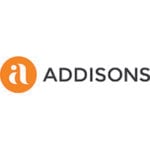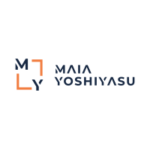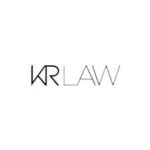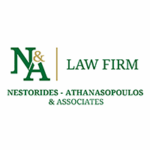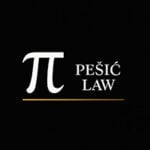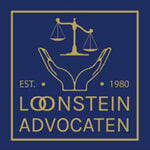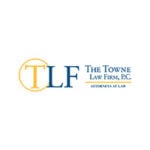-
What is the legal definition of gambling?
Games of chance are defined by Law 643 of 2001 (the “Gambling Law”) as games in which, according to rules predetermined by law and regulation, a person acting as a player places a bet or pays for the right to participate, to another person acting as an operator, who offers in exchange a prize, in money or in kind. The player wins if they correctly guess, based on the outcome of the game, which cannot be predicted with certainty, as it is determined by luck, chance, or randomness.
Games of chance also include those in which players participate without directly paying to do so and that offer a good or service as a prize, provided that the participant guesses correctly or fulfills the required condition to win.
Certain games of chance are excluded from the scope of the Gambling law:
- Traditional, family, and school games of chance that are not operated for profit or on a professional basis.
- Competitions intended purely for pastime or recreation.
- Promotional games conducted by licensed operators of games of chance.
- Raffles for the funding of the fire department.
- Promotional games such as raffles, bingo, sports betting, instant lotteries, and pre-printed lotto tickets operated by departmental charities, and capitalization companies.
- Sports games and games based on strength, skill, or dexterity. Bets placed on the outcome of these games are subject to the provisions of the Gambling Law.
Authorized categories of games of chance under the Gambling Law:
Under current regulation, games of chance are classified into the following categories, each subject to specific regulatory oversight and operational frameworks:- Traditional Lotteries. The exploitation of traditional lotteries falls under the jurisdiction of the departments and the Capital District of Bogotá.
- Permanent Betting or “Chance”. Fixed-odds game in which players select up to five digits and determine the wager amount. The outcome is linked to the results of a traditional lottery or another authorized game of chance.
- Raffles. Their exploitation falls under the jurisdiction of municipalities, departments, the Capital District of Bogotá, and Coljuegos.
- Promotional Games.
- Land-Based Games operated using gaming equipment or elements in commercial establishments, where the presence of players is a necessary condition to place bets. This category includes bingo, video bingos, ball drawing machines, slot machines, casino games (blackjack, poker, baccarat, craps, punto banco and roulette), and betting on races and virtual sports from a land-based establishment.
- Betting on sports events and similar events.
- Horse Racing Events. Their exploitation falls under the jurisdiction of each department and the Capital District of Bogotá.
- Novelty Games. All games of chance not included in the previously defined categories, including but not limited to:
– Pre-printed lotto
– Instant lotteries
– Online lotto in any form
– Online sports and real-event betting, as well as all games operated via the internet (online games) or through any other information technology that does not require the player’s physical presence.
– Keno
A game is deemed to be operated via the Internet when both the placement of the bet and the payment of prizes occur exclusively online, following the player’s registration on an authorized website or platform. These games rely on virtual random number generators or the occurrence of real events whose results are not controlled. Games involving physical draws (e.g., printed lottery tickets) are not considered online games; in such instances, the Internet serves only as a marketing channel. Coljuegos is the competent authority to regulate the operation and commercialization of games under its jurisdiction through online channels.
Novelty games fall exclusively under the jurisdiction of Coljuegos.
According to the Gambling Law, the contract between the player and the operator for participation in any game of chance is a contract of adhesion, aleatory in nature, regulated, and involves the expectation of gain or loss, depending on the occurrence or non-occurrence of an uncertain event.
-
What legislation applies to gambling? Please provide a summary of the legal/regulatory framework.
- Political Constitution of Colombia (Article 336). It grants the State the exploitation of the fiscal monopoly over games of chance. Revenue from the operation of such activities, must be allocated to a prevailing social purpose.
- Law 643 of 2001, whereby the regulatory framework for the fiscal monopoly on games of chance is established.
- Decree 4144 of 2011, by which the institutional placement of the National Council for Games of Chance (CNJSA) is determined and its functions are reassigned.
- Decree 4142 of 2011, by which the Industrial and Commercial Company of the State that administers the Fiscal Monolopy on Games of Chance, COLJUEGOS, is created.
- Decree 1278 of 2014, which regulates the operation of localized games of chance.
- Decree 3034 of 2013, which regulates the operation and technical conditions of traditional lotteries.
- Resolution of 5 November 2024, issuing the technical annex of Agreement 014 of 19 November 2013, that regulates the localized game called ‘Betting on Races and Virtual Sports’ (ACVD, for its Spanish abbreviation).
- Resolution 20250017074 dated July 2025 issuing the annex of technical requirements for raffles.
- Resolution 20250022644 of 6 October 2025. By which the Judicial Police Unit of COLJUEGOS, is created, its Coordinator is appointed and the public officials who are part of it are determined.
- Law 80 of 1993, which establishes the general legal framework governing the concession and procurement regime applicable to operators of games of chance at the territorial level.
- Law 599 of 2000. Colombian Criminal Code which punishes the illicit exercise of a state monopoly.
Legislation applicable to online games.
- Regulation of games of luck and chance of national order (Reglamento de los Juegos de Suerte y Azar del Orden Nacional de Competencia de Coljuegos – Acuerdo 08 de 16 de septiembre de 2020, amended by Acuerdo 02 del 30 de marzo de 2021 and Acuerdo 06 de 23 de octubre de 2023)
- Resolution dated 14 October 2022, issuing the Technical Requirements for Online Games, and Chapter VII regarding live casino game types dated 23 June 2023.
- Acuerdo 07 de 2024, which establishes the regulation of the game of chance denominated KENO.
- Resolution 20244000022654 of 16 October 2024, by which Coljuegos establishes new provisions and guidelines on responsible gaming
- Resolution No. 20195100044514 of 2019, by which Coljuegos establishes the minimum criteria and parameters that authorized operators in the gambling sector must adopt for the implementation and operation of a procedure for the prevention and control of ML/FT.
- Resolution 20161200025334 of 2016, as amended by Resolutions 20201000008294 of 2020 and 20250021304 of 2025, introduced by Coljuegos regarding operator guarantee requirements.
- Resolution 20231000019054 of 2023, issued by Coljuegos, regulating the advertising of online games.
-
Which body/ies regulate gambling?
Pursuant to Decree 4144 of 2011, the National Council for Games of Chance (CNJSA) is responsible for regulating and supervising games operated at the regional level. The administration of such games is the responsibility of regional governments.
Coljuegos is responsible for the regulation and oversight of the following games operated at the national level, pursuant to Decree 4142 of 2011.
- National Raffles.
- Promotional Games.
- Land-Based Games, operated using gaming equipment or elements in commercial establishments, where the presence of players is a necessary condition to place bets.
- Betting on sports events and Similar Events
- Novelty Games.
-
Are licences available? If so: a) What is the duration of a licence? b) What types of licences are available? c) Are there different types of licences for B2C and B2B operators? d) Do software suppliers need to be licensed?
What is the duration of a licence?
Concession contracts granted by Coljuegos to operate online games must have a duration of at least three years and no more than five years. All authorised online gaming verticals under the Gambling Law are covered by a single authorisation or concession contract.
What types of licences are available?
The Coljuegos concession contract for operating online games consists of a B2C license that covers all authorized verticals under the Gambling Law, including RNG-based casino games (such as slots, roulette, blackjack, baccarat, bingo, poker, and virtual games), live casino, specifically authorised instant win games, fixed-odds betting on sporting and non-sporting real events, as well as e-sports and fantasy sports.
Are there different types of licences for B2C and B2B operators?
No. Under Colombian Gambling Law, only a B2C online gaming license is established. Coljuegos does not grant B2B licenses.
Do software suppliers need to be licensed?
No. There is currently no B2B license requirement in Colombia. Instead, compliance with the Technical Requirements for the Operation of Online Games in Colombia determines whether a B2B provider is permitted to offer its services in the market.
Only certified games and platforms may be offered by licensed operators.
-
Are any types of gambling products prohibited?
In Colombia, only the gaming products expressly authorised and regulated by Coljuegos may be legally operated. Any product or game that does not fall within the authorised categories is considered prohibited.
Prohibited products include, for example, lotteries, raffles, or betting on non-approved virtual events when offered without specific authorisation. As well as cross-betting products or random prize draws that are not licensed or regulated.
Within the category of online gaming, Acuerdo 08 of 2020 (article 1.3.9) establishes specific prohibitions for betting on real events. Online operators may not offer bets on outcomes derived from slot machines, casino tables, bingo, or any other game whose result is determined by a real random number generator, nor on events that involve lottery or numerical elements. The same rule also expressly bans betting linked to financial indices, securities, cryptocurrencies, or other forms of virtual or unregulated digital currencies. Finally, operators are expressly prohibited from offering bets on events that infringe fundamental rights or on any political events.
Agreement 6 of 2023 prohibits Keno from being offered by online gaming operators and limits the category of instant prize games to only three titles authorized for operation. These games are defined as those in which players compete against the house by predicting outcomes based on numbers, letters, images, or symbols generated by a random number generator (RNG).
Overall, only games that comply with the technical and regulatory standards set by Coljuegos and are explicitly listed within the authorized categories may be legally offered in this jurisdiction. Any game not included in the authorized categories, or expressly restricted under the Gambling Law, is considered prohibited.
-
What is the headline application procedure? Please include any eligibility and other application requirements, including approximate application costs and any need to establish a local presence.
The licensing process in Colombia is administered by Coljuegos and follows a standardised procedure. Applicants must submit legal, financial and technical requirements. Application is free of charge.
A local presence in Colombia is required. This includes a Colombian legal entity or subsidiary, a registered address, a local bank account for company and player funds, and the appointment of a Compliance Officer, based in the country.
It is only legal to use a .co domain and only one domain is permitted per licence. Operators should only target Colombian residents and sign-ups should require Colombian national ID cards or valid foreigner resident ID cards. For the case of Venezuelan migrants, operators may accept Temporary Protection Permits (PPT) and Special Stay Permits as valid identification documents.
Main Documents and Information Required
- Legal Representative’s Identification Document
- Applicant’s Financial Statements
- Bank Documentation
- Certification of Compliance with the Technical Requirements for Online Games
- Estimated Contract Value
- Coverage for Prize Payment and Refunds
- Social Security and Parafiscal Compliance Certificate
- Manual for the System of Prevention and Control of Money Laundering and Terrorist Financing (SIPLAFT Manual)
- Code of Conduct
- Appointment of Compliance Officer (MLRO)
Financial and guarantee requirements:
- Minimum equity requirement: approximately 387,000 Euro in current assets. Equal to at least 30% of the fixed gaming tax for five years of the concession, plus administrative expenses.
- Annual fixed gaming tax: approximately 250,000 Euro (811 Colombian legal minimum monthly wages).
- Variable gaming tax: 15% of gross gaming revenue
- Administrative fee: 1% of the fixed tax + variable tax.
- Bank guarantee or equivalent mechanism covering players’ funds: minimum of approx.133,000 Euro, which must be updated periodically
- Insurance policies (liability, salaries and benefits, non-contractual civil liability): amounts depend on five-year financial projections
A 19% Value Added Tax (VAT) applicable to online bets was introduced by Decree 0175 of 2025. This measure has a temporary character, enacted under a state of exception—a special legal framework that allows the government to adopt urgent measures outside the ordinary legislative process—and remains in force until 31 December 2025, unless extended or modified by future tax reforms.
Operators may guarantee the payment of prizes and refund of player funds through one of the following mechanisms:
- Fiduciary trust
- Bank guarantee
- Insurance policy
If an insurance policy is selected as the guarantee mechanism, the coverage must be updated regularly: every six months during the first year and annually thereafter. Updates are calculated as a percentage of the operator’s net income: 8.1% for the first semester and 4.1% in subsequent years.
-
Do individuals within the business need to be personally licensed or authorised? If so, please provide headline requirements.
Yes. Operators are required to appoint a Compliance Officer (Money Laundering Reporting Officer, MLRO), who must ensure that the company complies with anti-money laundering (AML) and counter-terrorist financing (CFT) regulations and implement an AML/CFT manual in accordance with the System for the Prevention and Control of Money Laundering and the Financing of Terrorism (SIPLAFT).
The appointed Compliance Officer must meet the following criteria:
- Must be a direct employee of the company or, at minimum, hold a second-level management position.
- Cannot be a member of the company’s control or audit bodies.
- Must have experience or training in quality management systems, risk management, or project management, with a focus on AML/CFT controls.
- Must be registered and approved by Coljuegos, which requires submitting their curriculum vitae and a formal letter of acceptance of the position.
- Cannot hold the same position in more than one licensed operator.
In the event of the Compliance Officer’s resignation, the Legal Representative of the company temporarily assumes the responsibilities of the position until a new officer is appointed and approved.
-
Is advertising of gambling permitted and, if permitted, how is it regulated?
Yes. Advertising of gambling is permitted in Colombia provided that it is carried out either by licensed operators authorised by Coljuegos or by third parties, acting on their behalf under a contractual relationship. Gambling advertising is regulated primarily by Law 643 of 2001 and Resolution No. 20231000019054 of 2023, which set out the mandatory standards on responsible gaming, audience targeting, transparency of the operator’s identity, and content restrictions.
All forms of advertising, sponsorship, and promotion must comply with Coljuegos’ mandatory marketing standards, which include:
- Content or designs targeting minors or involving minors in any way are prohibited.
- Advertisements must not generate false expectations of winnings.
- All marketing materials must include a responsible gaming message and clearly indicate that participation is restricted to adults in Colombia (18+).
Operators may offer bonuses, sponsorships, or promotional initiatives such as incentives for player registration or participation, provided that these initiatives do not alter the game dynamics or mislead players regarding the nature of the game; and the terms, conditions, and validity of such promotions are clearly published on the operator’s website or interactive channels.
Marketing Investment Cap
Advertising expenditure cannot exceed 20% of the Base of Calculation for Advertising Investment (BCIP, as abbreviated in Spanish), calculated as follows:
BCIP = GGR– Variable gaming tax (15%) – Variable administrative fee (1%)
Alternatively, the total advertising investment may not exceed 11,000 Colombian monthly minimum wages, with a lower cap of 8,000 Colombian monthly minimum wages during the first year of operation.
Operators must submit an annual marketing investment plan to Coljuegos and ensure that total expenditures remain within these limits.
Sanctions for non-compliance in the Coljuegos marketing regulation include:
- Unauthorized use of brand or marks: Companies that use or have used names, brands, or commercial insignias of operators without Coljuegos’ prior authorization will not be granted concession contracts.
- Concession contracts will not be granted to legal entities that are associated with game suppliers who appear on unauthorised websites and or that conduct promotional activities illegally in Colombia.
- Contractual penalties: Breaches result in a contractual non-compliance declaration and a fine of 1.5% of the concession contract value. A third breach during the contract term may lead to unilateral termination of the concession.
- Coljuegos may impose administrative sanctions against individuals or companies that advertise, sponsor, or promote illegal gaming or engage in advertising not carried out by operators authorized by Coljuegos.
-
Are marketing affiliates permitted? If so, are they licensed or regulated?
Marketing affiliates may collaborate with licensed operators, and must strictly comply with all advertising, sponsorship, and promotional requirements established by Coljuegos. Any affiliate that promotes or facilitates unlicensed gambling is subject to administrative sanctions under Articles 4 and 44 of Law 643 of 2001, as this conduct is considered an unlawful intervention in the State monopoly.
According to article 61 of the Consumer Protection Statute (Law 1480 of 2011), the Superintendence of Industry and Commerce (SIC) also has jurisdiction over the advertising of gambling services when it is directed at consumers. Activities of influencers, affiliates or third parties promoting gambling, fall under the scope of consumer protection law, and the 2020 Influencer Advertising Guidelines, issued by the SIC, operate as the technical standard used by the SIC to determine transparency and disclosure obligations.
In this context, the SIC may impose the sanctions established in Article 61 of Law 1480 of 2011, which include:
- Fines of up to 2,000 Colombian legal monthly minimum wages;
- Temporary closure of establishments for up to 180 days;
- In cases of recidivism or serious violations, permanent closure or the permanent removal of the website or online platform used for the advertising;
- Temporary or permanent prohibition from producing, distributing or offering certain products or services;
- The destruction of goods when they pose a risk to consumer health or safety;
- Successive fines of up to 1,000 Colombian legal monthly minimum wages for failing to comply with SIC orders.
- Additionally, when it is proven that administrators, directors, legal representatives, partners or other natural persons authorised or executed the infringing conduct, the SIC may also impose personal fines of up to 300 Colombian legal monthly minimum wages and the prohibition from engaging in commercial activities for up to five (5) years.
-
What are the penalties for offering, facilitating or marketing unlawful gambling, and can the gambler be penalised for participating in unlawful gambling?
In Colombia, offering, facilitating, or marketing gambling activities without authorisation from Coljuegos constitutes an illegal activity under article 4 of Law 643 of 2001 subject to administrative, criminal, and fiscal sanctions.
From an administrative perspective, Coljuegos may initiate enforcement actions against natural or legal persons that promote, sponsor, or advertise illegal gambling operations, including marketing affiliates or intermediaries who collaborate with unlicensed operators. Such measures may include financial penalties and the administrative blocking of related websites and payment channels.
According to article 312 of the Colombian Criminal Code, as amended by Law 1393 of 2010, any person who organises, operates, or facilitates unauthorised games of chance may face imprisonment from six (6) to eight (8) years and a fine ranging from five hundred (500) to one thousand (1.000) Colombian legal monthly minimum wages.
As for players, individuals who participate in unlawful gambling are not criminally prosecuted, but they lose any right to claim winnings or refunds, and their participation is not protected under consumer or gaming regulations applicable to authorised operators.
-
Briefly detail key requirements for licensees.
- Local presence: The applicant must be a Colombian legal entity or a foreign company with a subsidiary in Colombia, duly incorporated and registered before the Chamber of Commerce and DIAN (tax authority).
- Concession contract: A five-year renewable concession contract must be signed with Coljuegos, granting the operator the right to offer all authorised online gambling products under the single licence framework.
- Documentary requirements: Applicants must submit corporate documentation (certificate of incorporation, by-laws, Chamber of Commerce registration, and tax identification), technical documentation proving compliance with Coljuegos’ standards, and financial statements demonstrating solvency.
- Technical certification: All platforms, RNGs, and games must be certified by an approved testing laboratory by Coljuegos. Certification must demonstrate compliance with Coljuegos’ Technical Requirements for Online Games. Likewise, the Technical Gaming System must meet these standards, operate in a TIER III data centre, and include a mirror server located in Colombia for Coljuegos’ supervision. All authorised online games must also comply with the minimum RTP of 83% required by the regulator.
- Local compliance officer: Appointment of an AML/CFT Compliance Officer located in Colombia is mandatory.
- Financial guarantees:
– Minimum patrimony of the company: at least 30% of the fixed gaming tax for the five-year concession period (approx. 387,000 Euro).
– Bank guarantee: covering players’ funds (approx. 133,000 Euro).
– Insurance policies: for civil liability, salaries, and social benefits.
– Working capital: approx. 345,000 Euro at the time of application. - Taxes and fees:
– Variable gaming tax: 15% of GGR.
– Fixed annual licence fee: 811 Colombian legal monthly minimum wages (approx.250,000 Euro).
– Administrative fee: 1% of the total of fixed and variable taxes.
– 19% VAT rate which applies temporarily - AML and responsible gaming: Implementation of the SIPLAFT AML/CFT programme, registration before the UIAF, and publication of a responsible gaming policy with access to self-exclusion tools.
- Colombian bank account: Licence holders must hold a bank account in Colombia to manage both company and player funds.
- Annual reporting: Operators must submit annual financial statements, technical audit reports, and responsible gaming compliance reports to Coljuegos.
-
Briefly detail key anti-money laundering requirements.
Operators must implement and maintain a comprehensive AML/CFT framework known as SIPLAFT as established by Coljuegos through Resolution No. 20195100044514 of 2019.
The SIPLAFT must include internal policies, control measures, and reporting mechanisms to detect and prevent suspicious activities. Operators must register before the UIAF (Financial Intelligence Unit) and submit the following monthly reports within ten (10) calendar days of the following month:
- Individual transactions: all cash, debit, or credit transactions exceeding $5.000.000 COP (approx. 1,117 Euro) per player in a single transaction.
- Multiple transactions: total monthly transactions exceeding $15.000.000 COP (approx. 3,351 Euro) per player.
- Absence of transactions: when no reportable transactions occurred during the previous month.
Each operator must appoint a Compliance Officer registered with Coljuegos, responsible for implementing the SIPLAFT, ensuring internal training, maintaining records for at least five years, and reporting directly to the UIAF and Coljuegos.
-
Briefly detail key responsible gambling (or safer gambling) requirements.
Operators must implement a Responsible Gambling Programme in accordance with Coljuegos Resolution No. 22654 of 2024. The programme must promote responsible play, prevent excessive gambling, and provide self-care and support tools for players.
Key obligations include appointing a staff member to lead the programme, implementing awareness and prevention measures, and ensuring that minors are not targeted or allowed to play.
Operators must display responsible gambling messages on their platforms and advertisements and include a direct link to Coljuegos’ Responsible Gambling microsite.
Online operators are required to offer self-exclusion tools and the official Coljuegos risk-factor test to identify problem gambling behaviours. The self-exclusion option must be visible, easily accessible, and allow players to select exclusion periods (in days, weeks or months). Players may cancel their self-exclusion at any time, but cancellation becomes effective 72 hours after the request. Operators must also maintain and update a registry of self-excluded players and ensure compliance with data protection laws.
An annual report on the implementation and results of the Responsible Gambling Programme must be submitted to Coljuegos within the first 15 working days of January. The non-compliance or this regulation may result in sanctions or licence revocation.
-
Briefly detail shareholder reporting and approval threshold(s).
Colombian gaming regulations do not establish a specific shareholding threshold to be reported directly to Coljuegos. However, in accordance with articles 631-5 and 631-6 of the Colombian Tax Code, as regulated by DIAN Resolution 000164 of 2021, any change affecting the Ultimate Beneficial Owner must be reported to the Single Registry of Beneficial Owners (RUB as it is abbreviated in Spanish) when a person holds 5% or more. The update must be made within one (1) month following the change; otherwise, the entity is subject to the sanction established in article 658-3, numeral 3 of the Tax Code, equivalent to 1 UVT per day of delay, with the UVT valued at $49,799 COP for 2025 (approx. 11.14 Euro).
-
Briefly detail the regulator’s enforcement powers, including sanctions.
Coljuegos has broad supervisory and enforcement powers under Law 643 of 2001, the concession contract and the AML Resolution 20195100044514 of 2019. It may conduct inspections, request information, and audit both technical and financial systems.
In cases of non-compliance, Coljuegos may impose administrative sanctions such as warnings, monetary fines, temporary suspension of operations, or termination of the concession contract.
More serious breaches, particularly those related to AML, technical manipulation, or operating without authorisation, may also be referred to Coljuegos, as the competent administrative authority to investigate and sanction unlawful gambling activities. Where the conduct also constitutes a criminal offence under the Colombian Criminal Code, the case may further be referred to the Office of the Attorney General for criminal prosecution.
-
What is the tax rate?
Online operators in Colombia are subject to both fixed and variable gaming taxes. The main applicable rates are:
- Variable gaming tax: 15% of Gross Gaming Revenue (GGR).
- Administrative fee: 1% calculated over the sum of the fixed and variable gaming taxes.
- Fixed annual licence fee: equivalent to 811 Colombian legal monthly minimum wages (approx. EUR 250,000), payable each year of the concession.
- VAT: A temporary 19% Value Added Tax (VAT) currently applies to online gambling operations under Decree 0175 of 2025. This measure remains in force until 31 December 2025, unless extended or replaced by a future tax reform.
- The general corporate tax rate is 35%
-
Are there any proposals for changing gambling laws and regulations in the next 12-24 months? If so, please provide an overview of the proposed changes and likely timing.
Yes. Two significant regulatory developments are expected within the next 12–24 months:
1. 19% Value Added Tax (VAT) on online bets. VAT applicable to online bets was introduced by Decree 0175 of 2025 as a temporary measure to remain in force until 31 December 2025, unless extended or modified by future tax reforms.
Following Constitutional Court Judgment C-431 of 2025, issued as part of the automatic constitutional review of legislative decrees adopted under a state of exception, the 19% VAT on deposits made in online games of chance remains in force under Legislative Decree 175 of 2025.
The Court confirmed the validity of the tax but clarified that the Colombian government may collect only the amount strictly required for the authorized budgetary items, and any excess must be returned or compensated. The Court further established that the DIAN (Colombian National Tax and Customs Authority) is responsible for determining the total amount effectively collected under the decree to verify whether any excess exists.
The DIAN (Colombian National Tax and Customs Authority) is responsible for calculating the total amount collected under the decree to determine if any excess exists. This calculation must be issued no later than the last day of the month following the filing and payment of the final tax return, which in practice will be around February 2026. Taxpayers will then have a five-year period to request a refund or compensation for any excess.
The National Government has also submitted a draft bill to Congress proposing to make the VAT a permanent measure; however, it is still pending legislative debate and approval.
2. Update of technical requirements: Coljuegos is also working on an update of the Technical Requirements for Internet-operated games, which will include revisions to certification standards, infrastructure obligations and monitoring mechanisms. Once issued, the new technical framework will require operators to adapt their platforms and certifications accordingly. This update is expected to be introduced progressively in 2026.
In summary, both taxation and technical compliance obligations are expected to change within the next 12–24 months, although no final regulatory text has yet been issued.
-
What key regulatory developments are proposed or on the horizon in the next 12-24 months?
Coljuegos has officially initiated a review and update of the Technical Requirements for Internet-operated games, through consultation and technical working groups opened with industry stakeholders. The regulator has publicly announced its intention to redesign the architecture of the Technical Gaming System to strengthen security, data governance, and transactional traceability.
This process is currently in a consultation and diagnostic phase, focused on the following objectives:
- Building a more secure and reliable digital ecosystem.
- Improving data management and transactional traceability.
- Reinforcing technological security standards.
- Aligning the Colombian framework with international best practices.
The reference architecture published by Coljuegos is not yet the final model, but it serves as the baseline for discussion in the ongoing regulatory update. No final draft regulation has been issued yet, and no implementation dates have been confirmed.
In October 2025, Coljuegos issued a draft resolution titled “By which the granting of bonuses in games of chance of the novel modality of internet-operated games is regulated.” Through this resolution, the regulatory body intends to establish specific rules for the use of bonuses and bonus credits, setting limits on the amount of bonuses that each operator may grant.
It is important to note that bonuses are rewards granted by the operator to the player once certain game or event conditions are met. They are considered prizes once the bonus is converted into credits available in the player’s account. Bonus credits refer to the bonuses reflected in the player’s account, either granted by the operator or obtained by the player, whose value may be deducted when calculating exploitation rights and administrative expenses. Under the draft resolution, Coljuegos limits the use of bonuses granted.
-
Do you foresee any imminent risks to the growth of the gambling market in your jurisdiction?
Yes. The main short- to medium-term risks relate to regulatory uncertainty in two areas currently under revision:
- Taxation: The temporary 19% VAT applicable to online gaming is currently under legislative review as part of the 2025 Tax Reform Bill. Until Congress confirms whether the VAT will become permanent or modified, operators face uncertainty regarding future tax burdens and pricing models, which may delay new market entries or investment decisions.
- Upcoming update to technical requirements: Coljuegos is in the process of updating the Technical Requirements for Internet-operated games. While this reform aims to modernise the framework and align it with international standards, the transition phase may require additional technological adaptation and recertification costs, particularly for operators with legacy systems or international platforms that must localise compliance obligations for the Colombian market.
In short, none of these changes block companies from entering the market, but they do create uncertainty, which may cause some operators to wait before making new investments until the final rules on taxes and technical requirements are confirmed
-
If a gambling start-up was looking for a jurisdiction in which to commence its activities, why would it choose yours?
Colombia’s i-gaming market is maturing and consolidating over time. Whilst the Colombian license is inward looking and cannot be used to target foreign jurisdictions, the population is large (circa 54 million), also having a well sized gambling population. The market has localised, enabling sponsorships of local football teams, and marketing to take place on the ground (traditional advertising). Requiring significant investment compared to offshore markets, Colombia has taken the online industry and localised it, enabling longevity for companies willing to put the funds and resources behind a tailored business plan. Legislation is generally predictable and resemblant of European regulated markets, enabling general predictability and room for growth.
Colombia: Gambling Law
This country-specific Q&A provides an overview of Gambling laws and regulations applicable in Colombia.
-
What is the legal definition of gambling?
-
What legislation applies to gambling? Please provide a summary of the legal/regulatory framework.
-
Which body/ies regulate gambling?
-
Are licences available? If so: a) What is the duration of a licence? b) What types of licences are available? c) Are there different types of licences for B2C and B2B operators? d) Do software suppliers need to be licensed?
-
Are any types of gambling products prohibited?
-
What is the headline application procedure? Please include any eligibility and other application requirements, including approximate application costs and any need to establish a local presence.
-
Do individuals within the business need to be personally licensed or authorised? If so, please provide headline requirements.
-
Is advertising of gambling permitted and, if permitted, how is it regulated?
-
Are marketing affiliates permitted? If so, are they licensed or regulated?
-
What are the penalties for offering, facilitating or marketing unlawful gambling, and can the gambler be penalised for participating in unlawful gambling?
-
Briefly detail key requirements for licensees.
-
Briefly detail key anti-money laundering requirements.
-
Briefly detail key responsible gambling (or safer gambling) requirements.
-
Briefly detail shareholder reporting and approval threshold(s).
-
Briefly detail the regulator’s enforcement powers, including sanctions.
-
What is the tax rate?
-
Are there any proposals for changing gambling laws and regulations in the next 12-24 months? If so, please provide an overview of the proposed changes and likely timing.
-
What key regulatory developments are proposed or on the horizon in the next 12-24 months?
-
Do you foresee any imminent risks to the growth of the gambling market in your jurisdiction?
-
If a gambling start-up was looking for a jurisdiction in which to commence its activities, why would it choose yours?
